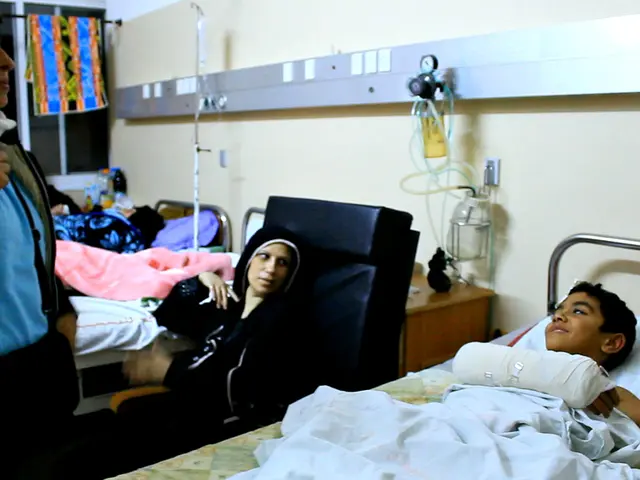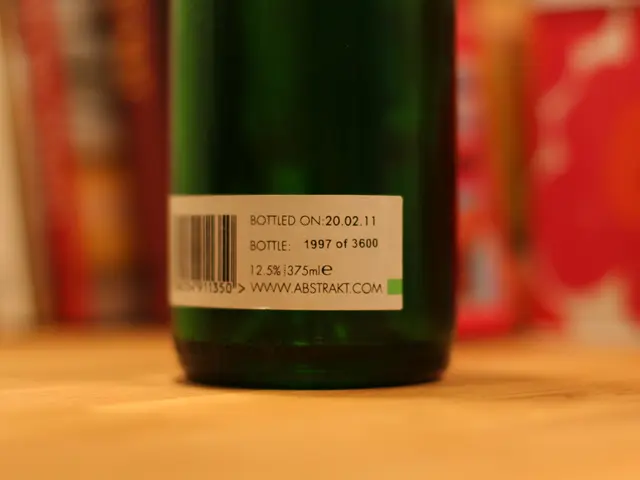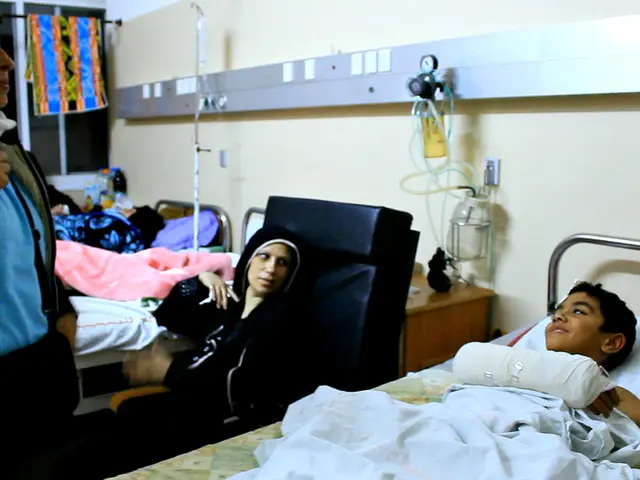UK-developed, certified software identified as the first medical device capable of real-time infection forecasting
In the ever-evolving landscape of healthcare technology, a UK-built AI tool named MEMORI is making waves. This innovative system, developed by Sanome, is poised to revolutionise the way healthcare-associated infections (HAIs) are detected and managed.
MEMORI, an AI-enabled warning system, is currently working towards FDA approval and has already collaborated with NHS Trusts and technology providers on various data-sharing initiatives. Its primary focus is on predicting HAIs up to 72 hours earlier than traditional methods, offering significant benefits for prompt clinical intervention.
The early detection capability of MEMORI supports the NHS’s 10-Year Plan, which emphasises prevention and early intervention. This proactive approach aligns with the strategic goal of reducing patient complications, cutting healthcare costs, and increasing hospital capacity.
MEMORI has already made a mark in the UK and Europe, achieving Class IIb CE certification and MHRA approval. This makes it the first UK-developed AI medical device to reach this milestone, paving the way for NHS rollout and wider adoption throughout Europe.
Key benefits of MEMORI include its ability to reduce healthcare costs, as HAIs cost the NHS around £2.7 billion annually and cause an additional 7 million hospital bed days. By providing early warnings, MEMORI can prevent infection progression, thereby reducing these economic and resource burdens.
MEMORI also helps improve hospital capacity by lowering complication rates and infection prevalence, freeing up hospital beds and easing overburdened healthcare systems. Furthermore, it delivers real-time alerts without disrupting clinical workflows, supporting healthcare staff in managing infection risks more efficiently.
Benedikt von Thuнгen, Sanome Founder and CEO, expressed pride in supporting a UK-grown solution that combines world-class science with a deep understanding of frontline healthcare. He emphasised that MEMORI provides clinicians with a window into the future, offering insights and tools to act before it's too late, without creating additional burden.
Sanome has also appointed a team of strategic advisors, including Lord James Bethell, a former Health Minister, and Dr Arrash Yassaee, Prof Carole Longson, Dr Michelle Tempest, Pam Garside, and Dr Cem Baydar. This expert advisory board, with firsthand experience of what it takes to achieve radical change across healthcare, further evidences Sanome's role in helping to shape the future of healthcare.
In conclusion, MEMORI enhances infectious disease surveillance and clinical decision-making, improving patient safety, resource use, and cost-effectiveness in UK and European healthcare settings. As Sanome prepares to announce additional partnerships and validation results later this year, the potential impact of MEMORI on the global healthcare landscape is truly promising.
- The digital health sector is abuzz with the news of MEMORI, an AI-enabled tool developed by Sanome, which is aiming to revolutionize the management and detection of healthcare-associated infections (HAIs) and could potentially contribute to transforming medical-conditions and health-and-wellness by reducing complications, saving costs, and increasing hospital capacity.
- The cutting-edge technology of MEMORI, set to receive FDA approval, is being hailed as a significant leap for science, as it can predict HAIs up to 72 hours before traditional methods, offering early intervention for health-and-wellness, contributing to the prevention and early detection strategies outlined in the NHS's 10-year plan.
- As MEMORI's advancements make an impact in science and health-and-wellness by improving infectious disease surveillance, clinical decision-making, and patient safety, its wider adoption in the technology and healthcare industries could forever alter the landscape of digital health and femtech news, with pioneering implications for the future of medical-conditions management and wellness.







